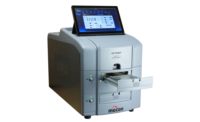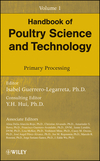Waters new REIMS Research System with iKnife Technology reduces sampling time to seconds

Waters Corporation introduced the Rapid Evaporative Ionization Mass Spectrometry (REIMS) Research System with iKnife Sampling, combining direct-from-sample ionization with high performance time-of-flight mass spectrometry and powerful, intuitive analytics. The system eliminates the need for sample preparation and chromatographic separation, providing food, microbiology and tissue researchers with near-instantaneous data acquisition.
Using Waters REIMS Research System with iKnife Sampling, researchers can quickly and easily differentiate samples from one another and confidently identify the differentiating features, allowing greater insight into the chemical and biological systems under investigation. In REIMS, direct, rapid heating of the samples leads to the formation of vapor that is rich in sample-specific chemical information. The vapor is taken directly into the mass spectrometer where the molecules are analyzed by time-of-flight mass spectrometry.
“The new system will deliver REIMS technology into the hands of many more scientists working in important areas such as research into food fraud and adulteration, where we anticipate its impact could be game-changing”, said Brian Smith, Vice President of Mass Spectrometry Operations at Waters.
As the global demand increases, food is increasingly making longer and more complicated journeys from farms to tables. As a result, the opportunities for the introduction and spread of contamination increase. In addition, food fraud is gaining interest as an emerging risk given the increasingly global and complex nature of supply chains. According to the World Customs Organization, food fraud (including the deliberate mislabeling of food and blending lower and higher quality raw materials in processed foods) is estimated to cost the world economy $49 billion (USD) annually. It is clear that new technologies are needed to combat these challenges.
The REIMS Research System also features Progenesis QI software, which offers an intuitive, workflow-based approach to process large data sets using powerful multivariate statistical methods. This quickly highlights differences within and between samples, allowing them to be grouped in an objective and unbiased way. Key molecular components can be identified and characterized, and results can be exported to take advantage of other informatics platforms, including molecular pathway analysis tools.
For more information, visit www.waters.com.
Looking for a reprint of this article?
From high-res PDFs to custom plaques, order your copy today!






